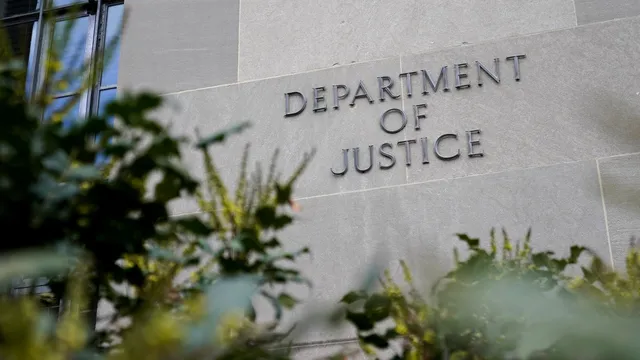
Pam Bondi invokes state secrets privilege to halt disclosure of deportation flights
2025-03-26 19:06- Judge James Boasberg issued a temporary restraining order on deportation flights of illegal immigrant gang members, which prompted the Justice Department's response.
- Pam Bondi invoked state secrets privilege to prevent the disclosure of details related to the deportations, citing national security concerns.
- The situation reflects a broader political tension regarding immigration enforcement and the separation of powers in the U.S. government.
Express your sentiment!
Insights
In the United States, Attorney General Pam Bondi has taken significant steps in response to a probe led by Judge James Boasberg regarding the deportation of gang members from the United States to El Salvador. This action unfolded following a temporary restraining order issued by Boasberg, which halted the deportation flights of illegal immigrants affiliated with gangs such as Tren de Aragua and MS-13. The deportations were initiated under the Trump administration, utilizing the Alien Enemies Act to target those deemed as participating in ongoing threats against the nation. The ACLU and Democracy Forward filed lawsuits challenging these deportations on behalf of several individuals, complicating the legal landscape surrounding immigration enforcement. In a prepared notice, Bondi asserted that the court lacks the authority to demand national security information, framing the issue as one of executive power and the need to protect sensitive state secrets. According to her, further disclosures could endanger national security and undermine diplomatic efforts. The Justice Department's position aligns with the view that such matters should remain within the purview of the executive branch, far from judicial interference. As the Trump administration continues to favor strong border security measures, this incident has highlighted a growing tension between the legal system and executive actions. This legal struggle has attracted attention not just from the judiciary but also from Republican lawmakers who have voiced their disdain for Boasberg's restraining order, viewing it as an impediment to the President's ability to govern efficiently. Some legislators have called for impeachment proceedings against Judge Boasberg, alleging that his interventions hinder the democratic mandate granted to President Trump. Furthermore, these actions underscore the political polarization surrounding immigration policy, as calls for more robust national security measures clash with progressive pushes for a more humane approach to immigration. The ongoing litigation and political fallout illustrate the complexities of balancing national security with judicial oversight, raising important questions about the power dynamics between branches of government. As of now, the situation remains tense, and it will be critical to observe how the courts address the balance of powers in this contentious issue moving forward.
Contexts
The Trump administration implemented a wide array of immigration policies that significantly altered the landscape of immigration in the United States. One of the key pillars of these changes was the emphasis on stricter enforcement of immigration laws. This involved ramping up deportations and increasing funding for border security, including the construction of a wall along the U.S.-Mexico border. The administration sought to deter illegal immigration by instituting policies such as the 'zero tolerance' policy, which resulted in the separation of families at the border. This action drew widespread criticism and sparked debates about human rights and the treatment of migrants in detention facilities. In addition to enforcement measures, the Trump administration made substantial changes to the legal immigration process. The administration pursued an agenda focused on reducing the number of immigrants granted legal status through various channels. This included efforts to limit refugee admissions and curtail the Diversity Visa Lottery program. The introduction of policies that prioritized skilled immigrants over family reunification also marked a significant shift in immigration strategy. These changes impacted not only those seeking asylum but also families and individuals hoping to gain legal status through employment or family connections. The administration also sought to address perceived abuses of the immigration system. This included heightened scrutiny of visa applications, particularly for programs like the H-1B work visa. Several existing programs were reviewed, leading to increased rejection rates and lengthy processing times for applicants. The 'public charge' rule was another controversial measure enacted by the administration, which sought to deny green cards to immigrants who utilized public benefits, effectively enforcing a wealth test on potential immigrants. Overall, the Trump administration's immigration policies created an environment marked by fear and uncertainty among immigrant communities. While supporters argued that these measures were necessary for national security and economic interests, opponents raised concerns regarding their humanitarian implications and the impact on families. The consequences of these policies continue to resonate, influencing public perception and political discourse surrounding immigration in the United States.